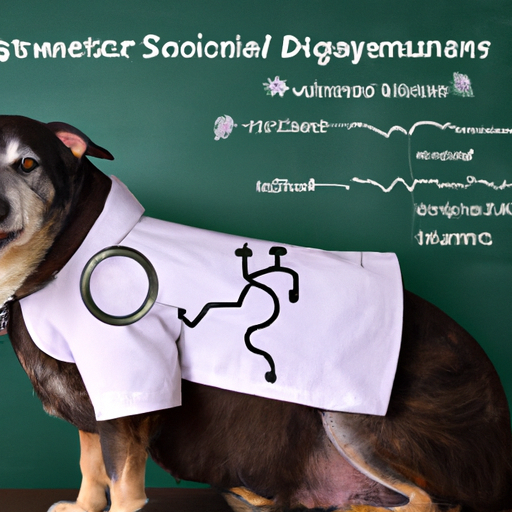As a caregiver, your pet’s health is undeniably one of your top priorities. Dealing with an unfortunate diagnosis like stomach ulcers can feel overwhelming and disheartening, but rest assured, you are not alone in this journey. This guide is designed to provide you with the knowledge and tools necessary to help your furry friend navigate through this challenging time.
Recognizing the Symptoms
First and foremost, it’s important to understand the signs and symptoms of stomach ulcers in dogs. Such knowledge enables you to act promptly and seek veterinary assistance when needed. Common symptoms to watch out for include:
- Vomiting (often with blood)
- Loss of appetite
- Weight loss
- Anemia
- Dark, tarry stools
Understanding the Causes
Stomach ulcers in dogs are often a result of many factors. Some of the common causes include:
- Medications: Certain drugs, especially nonsteroidal anti-inflammatory drugs (NSAIDs) and steroids, can irritate the stomach lining and lead to ulcers.
- Stress: High levels of stress can increase stomach acid production, leading to ulcers.
- Disease: Conditions such as liver disease, kidney failure, or pancreatitis can lead to stomach ulcers.
Implementing a Treatment Plan
Once your vet has diagnosed your dog with a stomach ulcer, they will likely propose a treatment plan. This may include:
- Dietary Changes: Feeding your dog a bland diet that’s easy on the stomach.
- Medication: Antacids, antibiotics, or other medications to reduce stomach acid and promote healing.
- Hospitalization: In severe cases, your dog may need to be hospitalized for intensive care and monitoring.
Preventing Future Ulcers
Prevention is always better than cure. To prevent future ulcers, consider the following:
- Limit the use of NSAIDs and steroids unless absolutely necessary.
- Provide a stress-free environment for your dog.
- Regular vet check-ups for early detection of diseases that may cause ulcers.
Frequently Asked Questions (FAQs)
Q: Can stomach ulcers in dogs be fatal?
A: If left untreated, stomach ulcers can lead to serious complications, such as perforation of the stomach wall, which can be life-threatening. Immediate veterinary attention is necessary if you suspect your dog has a stomach ulcer.
Q: How long does it take for a stomach ulcer to heal in dogs?
A: With proper treatment, most stomach ulcers in dogs start to heal within a few days to a week. However, complete healing may take several weeks.
Q: Can diet cause stomach ulcers in dogs?
A: While diet alone is not typically the cause of stomach ulcers, certain foods can irritate an already existing ulcer. Your vet may recommend a special diet to help your dog’s stomach ulcer heal.
Remember, your dog relies on you for their well-being. Your care, combined with professional veterinary help, can go a long way in helping your dog recover from stomach ulcers.



